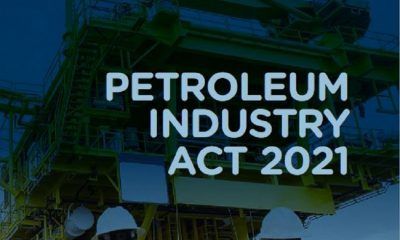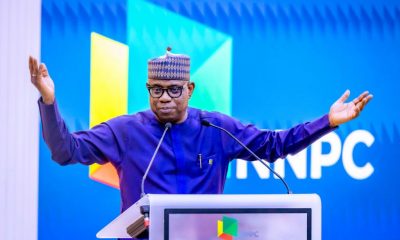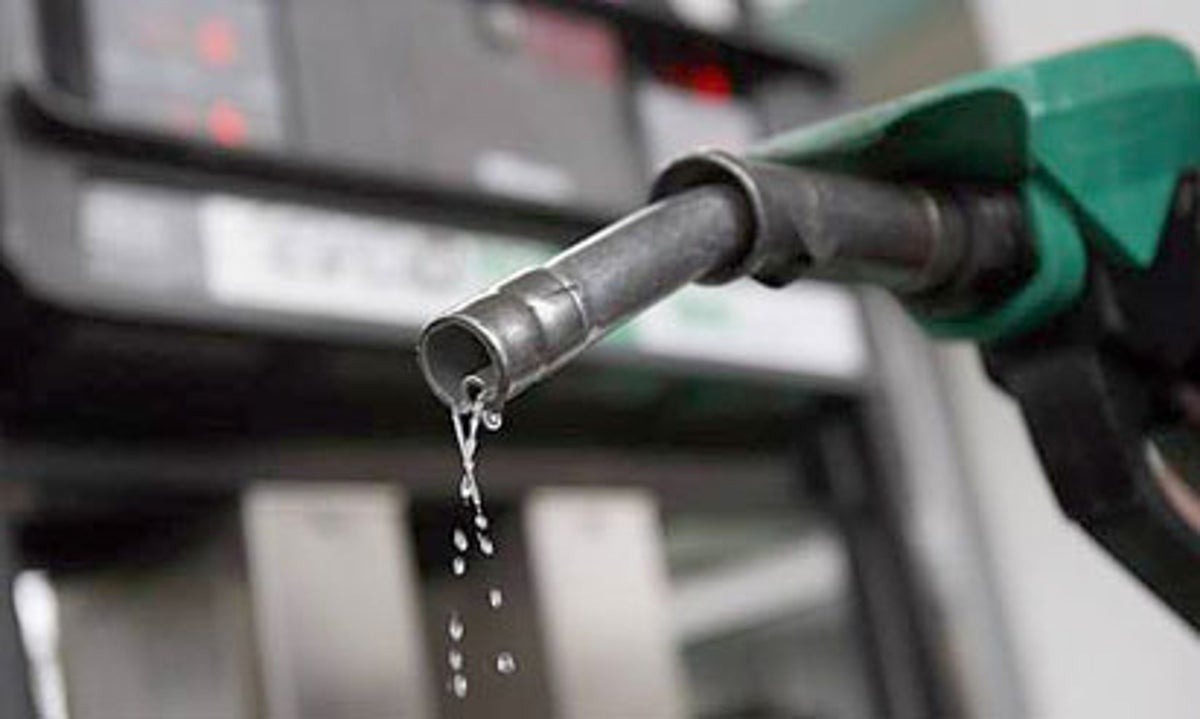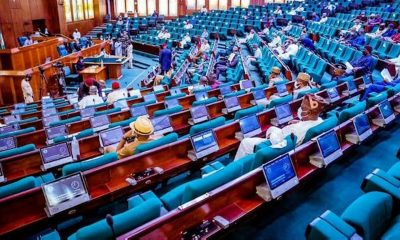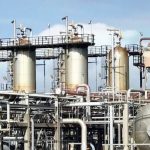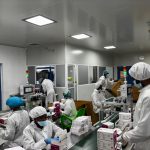General
PIA and Gestation of Acts
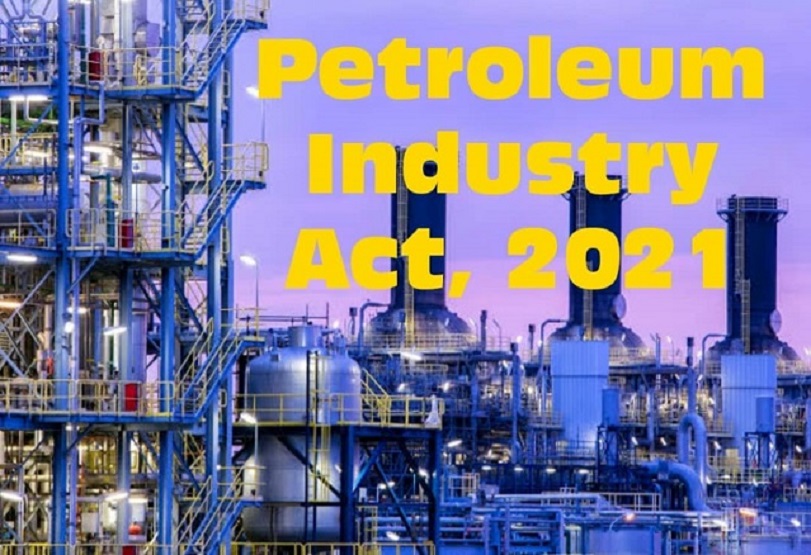
By Jerome-Mario Chijioke Utomi
Many Nigerians with critical interest had hitherto believed that the advent of Nigeria’s Petroleum Industry Act (PIA) 2021, which was signed into law in the year mentioned above, and arguably the most audacious attempt to overhaul the petroleum sector in Nigeria, would solve the real and imagined challenges in the nation’s petroleum sector, and turn the Niger Delta region, particularly host communities, to a zone of peace in their relationship with crude oil prospecting and exploration companies.
However, facts have since emerged that instead of providing the legal, governance, regulatory and fiscal framework for the Nigerian petroleum industry and the host communities, the Petroleum Industry Act has, contrary to expectations, become a first line of conflict between crude oil prospecting, exploration companies and their host communities.
Like other Acts that guided crude oil production in the past, PIA has similarly become a toothless bulldog that neither bites nor barks. In fact, analysts and industry watchers have come to a sudden realization that nothing has changed.
Among many examples, the recent 14 days ultimatum/threat by an oil-rich community of Tsekelewu (Polobubo) in Warri North Local Government Area of Delta State to shut down ongoing exploration activities of Conoil Producing Limited if the company failed to reach a definite agreement with the community on the implementation of Chapter 3 of the PIA for the Tsekelewu bloc of communities, supports this assertion.
Entitled ‘Fourteen (14) Days Ultimatum to Implement Chapter 3 of 2021 Petroleum Industry Act (PIA) in Tsekelewu (Polobubo) Host Community and Bloc of Communities by Conoil Producing Limited at OML 103’, the petition/ultimatum, dated December 30, 2022, signed by the President-General of the Tsekelewu (Polobubo) Development Association, Dr Bright Abulu, and the spokesman of the association, Mr Christmas Ukagha, and addressed to the Managing Director/Chief Executive Officer of Conoil Producing Limited, among other things, lamented that they adopted the option due to seemingly snobbish attitude of the management of Conoil as the company’s management had refused to honour letters asking for a meeting with the TCDA on the issue of the PIA implementation.
Essentially, while the people of Tsekelewu (Polobubo) host community continue to wait for what becomes the outcome of their ultimatum, there is indeed, greater evidence that points to the fact that the underlying premise behind PIA enactment has been defeated.
There is equally a reason for concern that what is currently happening between oil companies and their host communities may no longer be the first half of a reoccurring circle but, rather, the beginning of something negatively new and different.
A tour by boat of creeks and coastal communities of Warri South West and Warri North Local Government Areas of Delta State will amply reveal that the much-anticipated end in sight of gas flaring is actually not in sight.
In the same manner, a journey by road from Warri via Eku-Abraka to Agbor and another road trip from Warri through Ughelle down to Ogwuashi Ukwu in Anoicha Local Government of the state shows an environment where people cannot properly breathe as it is littered by gas flaring points.
To a large extent, the above confirms as true the recently published report, which, among other concerns, noted that Nigeria has about 139 gas flare locations spread across the Niger Delta both in onshore and offshore oil fields where gas which constitutes about 11 per cent of the total gas produced are flared.
Apart from the health implication of flared gases on humanity, their adverse impact on the nation’s economy is equally weighty.
For instance, a parallel report published a while ago underlined that about 888 million standard cubic feet of gas were flared daily in 2017. The flared gas, it added, was sufficient to light up Africa, or sub-Saharan Africa, generate 2.5 gigawatts (GW) of power or produce 50 million barrels of oil equivalent (boe) or produce 600,000 metric tonnes of liquefied petroleum gas (LPG) per year, produce 22 million tonnes of carbon dioxide (CO2), feed two-three liquefied natural gas (LNG) trains, generate 300,000 jobs, able to attract $3.5 billion investment into Nigeria and has $350 million carbon credit value’. This is an illustrative pointer as to why the nation economically gropes and stumbles.
Looking at the enormity of the health and economic losses inherent in gas flaring, one may be tempted to ask what set the stage for gas flaring in Nigeria. The politics that keep it going, and why it ‘flourishes unabated?
Banking on what experts are saying, the major reason for the flaring of gases is that when crude oil is extracted from onshore and offshore oil wells, it brings with it raw natural gas to the surface and where natural gas transportation, pipelines, and infrastructure are lacking like in the case of Nigeria, this gas is instead burned off or flared as a waste product as this is the cheapest option. This has been on since the 1950s when crude oil was first discovered in commercial quantity in Nigeria.
While Nigeria and Nigerians persist in encountering gas flaring in the country, even so, has successive administrations in the country made both feeble and deformed attempts to get it arrested.
The facts are there and speak for it.
In 2016, President Muhammadu Buhari-led administration enacted Gas Flare prohibition and punishment), an act that, among other things, made provisions to prohibit gas flaring in any oil and gas production operation, blocks, fields, onshore or offshore, and gas facility treatment plants in Nigeria.
On Monday 2nd.September 2018, Dr Ibe Kachikwu, Minister of State for Petroleum (as he then was), while speaking at the Buyers’ Forum/stakeholders’ Engagement organized by the Gas Aggregation Company of Nigeria in Abuja, among other things, remarked thus, ‘I have said to the Department of Petroleum Resources, beginning from next year (2019 emphasis added), we are going to get quite frantic about this (ending gas flaring in Nigeria) and companies that cannot meet with extended periods –the issue is not how much you can pay in terms of fines for gas flaring, the issue is that you would not produce. We need to begin to look at the foreclosing of licenses’.
That threat has since ended in the frames as the Minister did little or nothing to get the threat actualized.
The administration also launched the now abandoned National Gas Flare Commercialization Programme (NGFCP, a programme, according to the federal government, aimed at achieving the flares-out agenda/zero routine gas flaring in Nigeria by 2020.
Again, like a regular trademark, it failed.
Away from Buhari’s administration, in 1979, the then federal government, in a similar style, came up with the Associated Gas Re-injection Act, which summarily prohibited gas flaring and also fixed the flare-out deadline for January 1, 1984. It failed in line with the leadership philosophy in the country.
Similar feeble and deformed attempts were made in 2003, 2006, and 2008.
In the same style and span, precisely on July 2, 2009, the Nigerian Senate passed a Gas Flaring (Prohibition and Punishment) Bill 2009 (SB 126) into Law, fixing the flare-out deadline for December 31, 2010- a date that slowly but inevitably failed.
Not stopping at this point, the FG made another attempt in this direction by coming up with the Petroleum Industry Bill, which fixed the flare-out deadline for 2012. The same Petroleum Industry Bill (PIB) got protracted till 2021, when it completed its gestation and was subsequently signed into law by President Buhari as PIA.
Despite this vicious movement to save the industry, the environment and its people, the Niger Delta challenge remains.
So, the question that is as important as the piece itself is; if this legion of laws/Acts cannot save the people of the region, who will? When will it complete its gestation period and deliver the targeted result to the people of the Niger Delta region?
While the answer(s) to the above question remains germane, this piece holds the opinion that to permanently resolve the Niger Delta question, the people of the region must be directly involved in the management of their resources. Call it resource control; you may not be far from the truth!
Utomi Jerome-Mario is the Programme Coordinator (Media and Policy) at Social and Economic Justice Advocacy (SEJA), Lagos. He can be reached via [email protected]/08032725374
General
NGIC Pipeline Network to Experience 4-Day Gas Supply Shortage

By Modupe Gbadeyanka
The pipeline network of the NNPC Gas Infrastructure Company Limited (NGIC) will witness a temporary reduction in gas supply for four days.
This information was revealed by the Chief Corporate Communications Officer of the Nigerian National Petroleum Company (NNPC) Limited, Mr Andy Odeh, in a statement on Thursday night.
A key supplier of gas into the NGIC pipeline network is Seplat Energy Plc, a joint venture partner of the state-owned oil agency.
It was disclosed that the facility would undergo routine maintenance from Thursday. February 12 to Sunday, February 15, 2026.
The NNPC stated that, “This planned activity forms part of standard industry safety and asset integrity protocols designed to ensure the continued reliability, efficiency, and safe operation of critical gas infrastructure.”
“Periodic maintenance of this nature is essential to sustain optimal system performance, strengthen operational resilience, and minimise the risk of unplanned outages,” it added.
“During the four-day maintenance period, there will be a temporary reduction in gas supply into the NGIC pipeline network. As a result, some power generation companies reliant on this supply may experience reduced gas availability, which could modestly impact electricity generation levels within the timeframe.
“NNPC Ltd and Seplat Energy are working closely to ensure that the maintenance is executed safely and completed as scheduled. In parallel, NNPC Gas Marketing Limited (NGML) is engaging alternative gas suppliers to mitigate anticipated supply gaps and maintain stability across the network,” the statement further said.
“Upon completion of the maintenance exercise, full gas supply into the NGIC system is expected to resume promptly, enabling affected power generation companies to return to normal operations,” it concluded.
General
Judge Withdraws from EFCC Cases Against Former AGF Malami
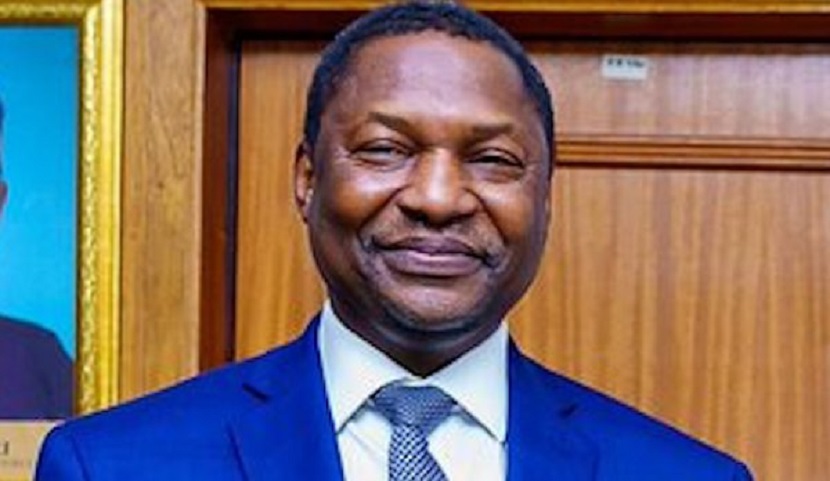
By Adedapo Adesanya
Justice Obiora Egwuatu of the Federal High Court in Abuja has recused himself from the two cases involving the former Attorney General of the Federation, Mr Abubakar Malami, filed by the Economic and Financial Crimes Commission (EFCC).
Mr Egwuatu was recently reassigned the cases by the Chief Judge of the Federal High Court, and he disclosed that he withdrew for personal reasons and in the interest of justice.
The cases against Mr Malami were formerly before Justice Emeka Nwite of the same court, who was a vacation judge during the festive season.
Mr Egwuatu’s recusal comes after the civil suit for the forfeiture of 57 properties allegedly linked to Mr Malami was called for mention.
The former AGF, his wife, and son are facing a 16-count money laundering charge. They were granted bail on January 7 in the sum of N500 million with two sureties by Justice Emeka Nwite of the Federal High Court in Abuja.
Justice Nwite stated that the sureties must have landed property in Asokoro, Maitama, and Gwarinpa.
The judge added that the trio must submit their travel documents to the court.
The former Minister of Justice is facing a fresh persecution over the arms and ammunition found in his house by the Department of State Service (DSS). The arms were reportedly uncovered at his Kebbi country home by the operatives of the EFCC during a search.
The anti-graft agency handed the weapon to the secret police for a comprehensive probe, citing a lack of constitutional authority to investigate the possession.
Similarly, the former AGF was accused of knowingly abetting terrorism financing by refusing to prosecute terrorism financiers whose case files were brought to his office as the AGF in the last administration for prosecution. Alongside his son, the lawyer was accused by the DSS of engaging in conduct in preparation to commit an act of terrorism by having in their possession and without a licence, a Sturm Magnum 17-0101 firearm, 16 Redstar AAA 5’20 live rounds of Cartridges and 27 expended Redstar AAA 5’20 Cartridges.
General
NLNG Says Low-Risk Key to Unlocking Value in Nigeria’s Gas Industry

By Adedapo Adesanya
Nigeria LNG (NLNG) has reaffirmed that a well-structured, low-risk approach in Nigeria’s energy sector is essential to unlocking investments, accelerating economic development and strengthening energy security.
NLNG’s General Manager, Production, Mr Nnamdi Anowi, said this at a panel session titled De-Risking Investments in African Oil and Gas Projects during the Sub-Saharan Africa International Petroleum Exhibition and Conference (SAIPEC) in Lagos, noting that when oil and gas projects are perceived as too risky, investors tend to withdraw, leading to stalled projects, job losses, and missed revenue opportunities critical for national growth.
According to a statement by Mrs Anne-Marie Palmer-Ikuku, Manager, Corporate Communication and Public Affairs, he stated that reducing risks in oil and gas projects, beyond being a business strategy, was a matter of national importance for Nigeria’s economy, energy security, and long-term development.
He further explained that for NLNG, lowering risk means keeping gas flowing reliably, meeting long-term contracts, and ensuring the company remains a trusted supplier to global and domestic markets.
He said this will allow investors to fund projects at a lower cost, which ultimately benefits both companies and the country.
Mr Anowi also highlighted the importance of good infrastructure, local skills, and modern technology in reducing everyday operational risks.
He said that when pipelines, processing facilities, and digital systems work well, projects are safer, cheaper to run, and more reliable over time.
“If we reduce risk the right way and work together, investment will come; the next decade must focus on growing proven, bankable projects that deliver real value to the country, ” he further said.
In his closing remarks, Mr Anowi noted that Africa and Nigeria in particular are investable when risks are planned for and managed carefully, not ignored.
-

 Feature/OPED6 years ago
Feature/OPED6 years agoDavos was Different this year
-
Travel/Tourism10 years ago
Lagos Seals Western Lodge Hotel In Ikorodu
-

 Showbiz3 years ago
Showbiz3 years agoEstranged Lover Releases Videos of Empress Njamah Bathing
-

 Banking8 years ago
Banking8 years agoSort Codes of GTBank Branches in Nigeria
-

 Economy3 years ago
Economy3 years agoSubsidy Removal: CNG at N130 Per Litre Cheaper Than Petrol—IPMAN
-

 Banking3 years ago
Banking3 years agoSort Codes of UBA Branches in Nigeria
-

 Banking3 years ago
Banking3 years agoFirst Bank Announces Planned Downtime
-

 Sports3 years ago
Sports3 years agoHighest Paid Nigerian Footballer – How Much Do Nigerian Footballers Earn


